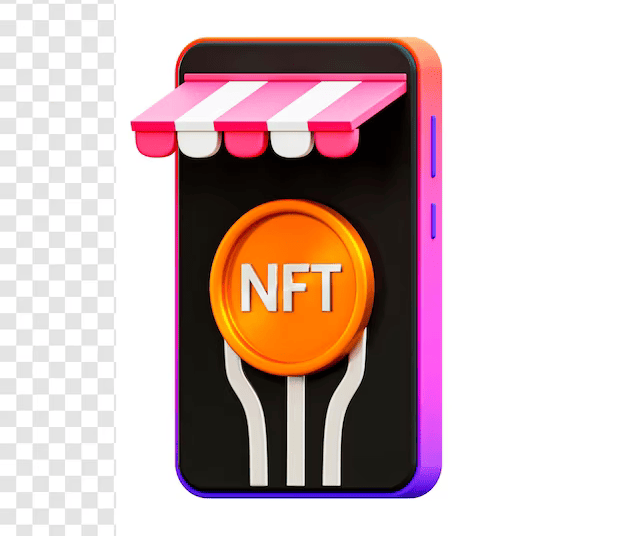The emergence of NFTs has revolutionized how we view and exchange digital assets, taking the online world by storm. These unique tokens offer a new level of ownership and provenance, enabling creators to monetize their digital creations and collectors to own exclusive digital items.
As the demand for NFTs continues to rise, NFT marketplaces have emerged as the go-to platforms for buying and selling these one-of-a-kind assets. A thorough understanding of blockchain technology, smart contracts, and user behavior is necessary to develop an NFT marketplace app.
It is an opportunity to create a thriving ecosystem where artists, musicians, gamers, and enthusiasts can connect, trade, and explore the world of digital collectibles. In this guide, we will delve into the core aspects of NFT marketplace app development, from market analysis and defining marketplace features to selecting the right blockchain platform and implementing robust security measures.
By following these key points, you can embark on a journey to build a successful NFT marketplace that caters to the growing demands and aspirations of the digital art and collectibles community.
Plan Your NFT Marketplace
Developing an NFT marketplace app requires thorough planning to ensure success and optimize costs. Market research plays a crucial role in identifying the niche market, unique selling proposition (USP), and target audience.
Analyzing competitors helps identify areas where your platform can stand out. Defining the marketplace features, both basic and advanced, is essential to create a user-friendly platform that meets traders’ needs. This includes features like user registration, storefront, NFT creation and listing, search and filters, smart contract integration, payment and transaction processing, marketplace governance, data security, and more.
Choose a Blockchain Platform
Selecting the right blockchain platform is critical for NFT marketplace app development. Ethereum, with its open-source decentralized network and support for smart contracts, is a popular choice. Binance Smart Chain offers faster transaction speeds and lower fees, while Polygon provides a Layer 2 scaling solution for Ethereum. Flow blockchain focuses specifically on NFTs and offers high scalability. Understanding the unique features of each platform will help you make an informed decision based on your project requirements.
Develop a Business Model
Developing a business model for your NFT marketplace involves identifying the costs associated with operating the platform and determining revenue streams. Revenue models can include transaction fees, listing fees, subscription fees, royalties, and advertising. It is essential to establish a pricing strategy for various services offered on the marketplace. This will ensure profitability while providing value to both creators and collectors.
NFT Marketplace App Development
Building an NFT marketplace app requires a team of experts in various fields. The UI/UX design should focus on consistency, intuitive navigation, clear messaging, responsive design, and continuous testing and iteration.
Front-end development brings the visual design and functionality to life, enabling users to engage with the platform seamlessly. Smart contracts play a vital role in facilitating secure and transparent transactions, ownership verification, and royalty distribution. Wallet integration allows users to securely store, manage, and transfer their NFTs. It is crucial to consider wallet choice, integration with smart contracts, user interface, security, and customer support.
The backend infrastructure supports the platform’s core functionality and includes technologies like smart contract languages, web frameworks, databases, payment gateways, cloud hosting, and more. Testing and quality assurance are essential to identify and address any bugs or issues before the platform’s launch. Legal and regulatory compliance is critical in ensuring the platform adheres to AML and KYC regulations and protects intellectual property rights.
Finally, launching and promoting the NFT marketplace is crucial for building awareness, attracting users, and generating revenue. Strategies include branding, SEO, paid advertising, community building, partnerships, PR, analytics, and metrics. Effective management and scalability are vital as the platform grows, ensuring customer support, escrow services, dispute resolution, infrastructure upgrades, new feature additions, and expansion into new markets.
Conclusion
Developing an NFT marketplace app involves careful planning, technical implementation, compliance with legal requirements, and effective promotion. Thorough market research, defining marketplace features, choosing the right blockchain platform, and implementing smart contracts are critical steps in the development process.
Building a business model, designing a user-friendly interface, integrating wallets, and ensuring backend infrastructure scalability are essential for a successful NFT marketplace. Overcoming technical challenges, addressing legal and regulatory risks, and managing security issues are vital considerations. Finally, launching and promoting the platform, along with effective management and scalability strategies, will contribute to the long-term viability and success of the NFT marketplace.
Read Also: Use Of Instagram Spy App As Teaching Guide







